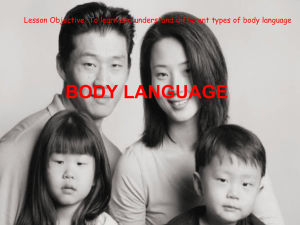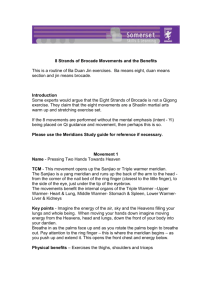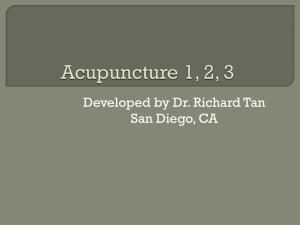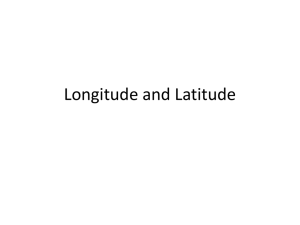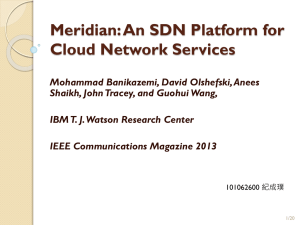Johnson Symposium Slides - Loyola University Chicago
advertisement
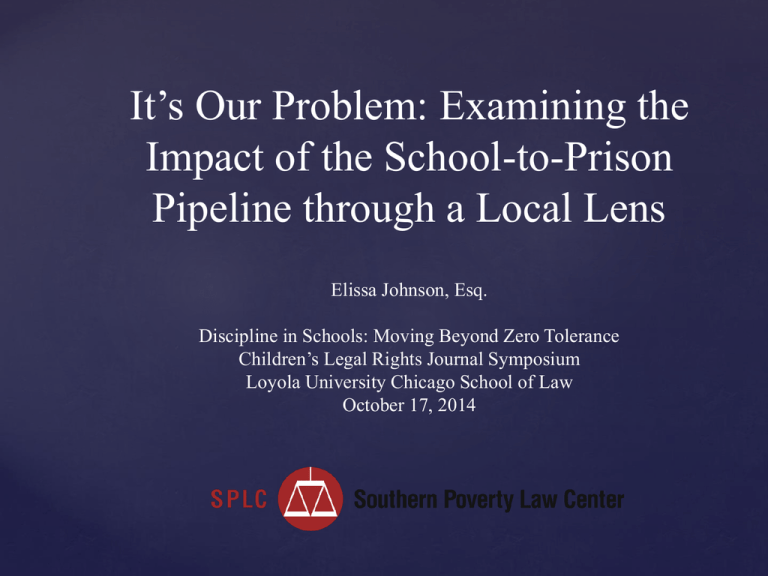
It’s Our Problem: Examining the Impact of the School-to-Prison Pipeline through a Local Lens Elissa Johnson, Esq. Discipline in Schools: Moving Beyond Zero Tolerance Children’s Legal Rights Journal Symposium Loyola University Chicago School of Law October 17, 2014 Who is Getting Caught in the School-toPrison Pipeline? • African American students make up 18% of the school-aged population, but 46% of the students who have been suspended multiple times • Students with disabilities make up about 9% of the school-aged population, but are about 32% of the students in juvenile detention centers Source: Teaching Tolerance, School to Prison Pipeline, No. 43 Spring 2013, available at http://www.tolerance.org/magazine/number-43-spring-2013/school-to-prison The Consequences of the School-to-Prison Pipeline • Increased drop-out rates and/or risk of falling further behind in school • Interaction with law enforcement and court system • Exposure to trauma/abuse in facilities by staff or peers • Separation from family and community • Transfer to adult court and extended incarceration Narrowing the Focus: Meridian, Mississippi A snapshot of the Meridian School District Population: • • • 86% African American; 12% white; 1% Asian; 1% Hispanic 83% of students receive free or reduced lunch, compared to 71% of students in Mississippi 13% of students have been determined to be eligible for special education services Source: U.S. v. City Of Meridian et al. Complaint, available at http://www.justice.gov/crt/about/spl/documents/meridian_complaint_10-24-12.pdf A Very Local Problem: Meridian’s School-to-Prison Pipeline • From August 2006 to December 2009, all of the students expelled and referred to law enforcement from MPSD were African-American, and 96% of the students who were suspended were African-American. • Students were routinely suspended from school for non-criminal infractions such as dress code violations, being tardy, use of profanity or disruptive behavior. • Students who were suspended and on probation were put in detention for the duration of the suspension, including weekends. While in detention, students were subjected to chemical restraints, excessive use of force, and excessive cell confinement. Source: U.S. v. City Of Meridian et al. Complaint, available at http://www.justice.gov/crt/about/spl/documents/meridian_complaint_10-24-12.pdf Meridian’s School-to-Prison Pipeline Cont’d • The District’s rate of suspensions for more than ten days and suspensions of students receiving special education services were approximately seven times the rate for Mississippi schools. . • The Youth Court’s failure to comply with constitutional standards led to incarceration without probable cause and ineffective assistance of counsel. • Prolonged placement in the District’s alternative school due to repeated suspensions and time in detention center for nonviolent conduct. Source: U.S. v. City Of Meridian et al. Complaint, available at http://www.justice.gov/crt/about/spl/documents/meridian_complaint_10-24-12.pdf Attacking the Unjust Systems • E.W. et al. v. Lauderdale County, MS (2009) • Lawsuit challenging the conditions of confinement at local juvenile detention center • Settlement Agreement reached in June 2010 • Detention Center closed in February 2012 • Barnhardt and U.S. v. Meridian Municipal School District (1965) • Desegregation case from 1960s • Investigation Opened • Consent Decree entered in May 2013 • U.S. v. City of Meridian, et al. (2012) • Lawsuit alleging unconstitutional practices by police department and youth court judges and employees • Ongoing Litigation Contact Information Elissa Johnson, Staff Attorney Southern Poverty Law Center (601) 948-8882 Elissa.johnson@splcenter.org





